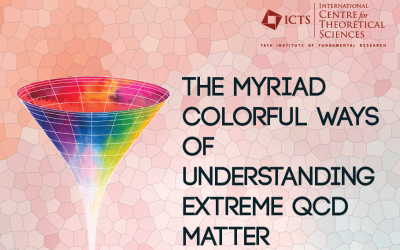Strongly interacting phases of QCD matter at extreme temperature and densities are complex and perplexing, yet they can reveal a lot about the fundamental dynamics of gauge theories. One such phase is the Quark-Gluon Plasma (QGP), which was formed in the microsecond-old Universe and has recently been successfully recreated in the major collider experiments at CERN and BNL. Upcoming experiments will probe QCD matter further in the high baryon density regime revealing many features of the complex phase diagram. Recently new insights on cold dense QCD matter which inhabit the core of neutron stars have come from observations of new era of multi-messenger astronomy. Theoretical description of how such phases of QCD matter were formed from perturbative processes and their equilibration and thermodynamic and real-time properties pose one of the most difficult challenges in theoretical physics today.
The goal of this program is to train the younger researchers comprehensively for confronting this challenge via assimilation of diverse theoretical perspectives including lattice gauge theory, perturbative QCD, and also holographic and kinetic approaches for far-from-equilibrium phenomena.
The main lectures will be on
- Perturbative QCD and effective theories like SCET
- Lattice Gauge Theory
- Thermal Field theory and hard-thermal-loop resummations in QCD
- Low-x physics
- Holographic approaches to QCD matter
- QCD kinetic theory
- Jets in QGP
We will also have talks on special emerging topics like hydrodynamic attractors, novel hybrid approaches, phenomenological methods, neutron stars and QCD, and a discussion session on collectivity in small systems. Finally, we will have talks from younger participants of the program.
This school is primarily aimed at young doctoral and postdoctoral researchers. The eligibility criterion for application is simply being involved in research in the areas related to the themes of the school. We will like to encourage applications from all nationalities.
Accommodation for outstation/non-local participants will be provided at our on campus ICTS guest house.
 icts
icts res
res in
in

